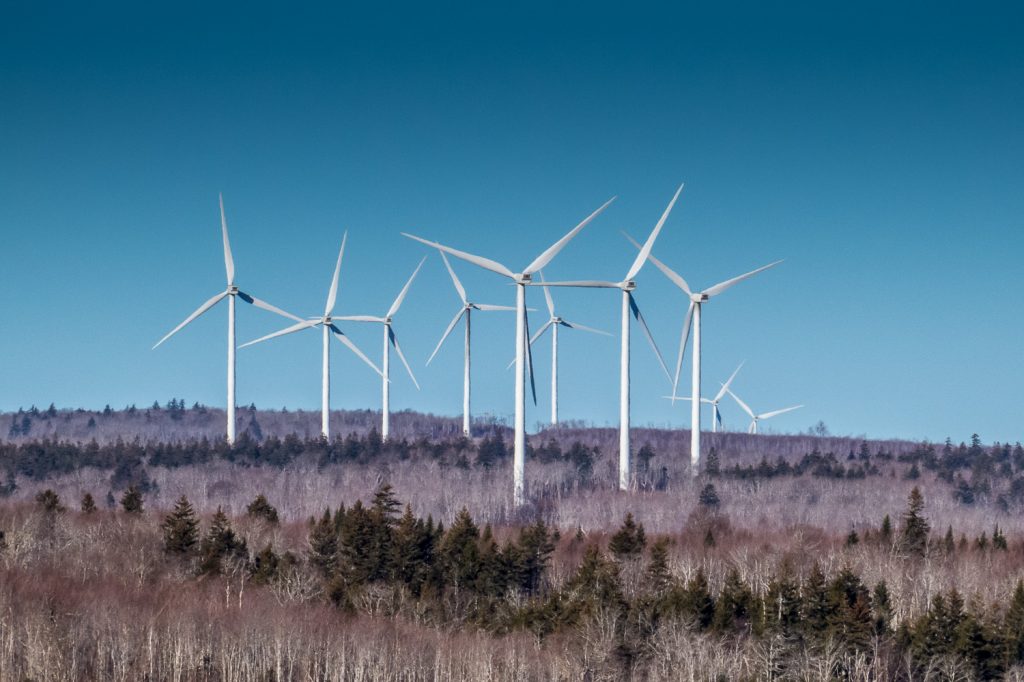By Jim Emberger – Special to Brunswick News – Published February 20, 2025
Threatening times, with rapidly changing events, inevitably produce two things. Public and media attention becomes focused on the turmoil and pace of immediate concerns, and longstanding issues, regardless of importance, are set aside.
Secondly, some corporate or financial interests will attempt to use the distraction to push profiteering schemes, especially unpopular ones. This is sometimes known as “disaster capitalism.”
We see this today as Canada’s fossil fuel producers, and their political and media allies, respond to Donald Trump’s tariff threats by re-introducing the ideas of the Energy East bitumen pipeline and various shale gas/LNG projects.
These projects are now cloaked in patriotism, with their proponents cynically counting on the public’s anxiety and patriotic fervour to cloud its memory of the legitimate economic and environmental grounds for rejecting the projects originally.
But tar sands (bitumen) and LNG made from fracked gas, remain the world’s most expensive, environmentally destructive, and carbon intensive sources of oil and gas, respectively, and carry severe threats to public health.
These facts are missing from industry proposals, otherwise filled with rosy guesstimates about how much money is to be made.
The most astounding omission is a lack of any discussion about how these projects will affect the climate, as if the two issues were not intimately connected. The main factor shaping energy markets is the global response to climate change – which requires a rapid move away from fossil fuels.
In 2024, over 80% of new electricity generation came from renewable energy, which is already cheaper than fossil fuels and getting more so. Although a lot of fossil fuel is still used, the trends are clear. Building multi-year fossil mega-projects for a shrinking market makes little sense.
How quickly that shrinking occurs depends on how climate change is affecting the world.
Despite our local frigid weather, January was the warmest on record globally – continuing an 18 month streak of record heat. Arctic Canada reached 30℃ above average, and ice was melting!
2024 was the warmest year, and capped the warmest decade. For the first time, an entire year of global temperatures increased by more than the 1.5℃ agreed to in the Paris climate treaty.
New research by the elder statesman of climate change, James Hansen, claims that we have passed 1.5℃ degrees, and a 2℃ degree rise is possible by the 2040’s. If so, notes a different study, a global area the size of the USA could be virtually unliveable.
Regardless, essentially no one understands why temperatures remain so high. The El Nino climate phase had been blamed for the record heat. It has ended, with no subsequent cooling. The climate may be warming faster than thought.
UN Secretary General Guiterres told nations, “Our fossil fuel addiction is a Frankenstein’s monster, sparing nothing and no one. All around us, we see clear signs that the monster has become master.”
This should be clear to Canadians – from the conflagrations of Fort MacMurray and Jasper, to weeks of smoke across North America from BC fires, along with that province’s deadly heatwaves and floods.
PEI is rapidly shrinking due to sea-level rise and storms. Aren’t we currently discussing spending millions in New Brunswick to keep our connection to Nova Scotia from washing away? There is a 4 year drought in the Prairies. Global crop failures show up on grocery bills, and mega-weather disasters fill the news.
In this context there is really no justification – economic or otherwise – for any new fossil fuel project – something scientists have told us for years.
The fact that fossil fuels promoters leave this issue entirely out of their proposals is clear evidence that they realize this too, but are willing to gamble with our future in order to squeeze in one more cash grab before they must shut down.
Donald Trump has ordained a ‘drill, baby, drill,’ policy, in an already saturated market, imposing tariffs, and is actually extorting countries to buy US fuels to avoid tariffs. These, and a potential end to the war in Ukraine, will bring chaos to the markets and make for tough forecasting.
But it is safe to say that fossil fuel markets will be extremely volatile – a risky place to invest, or to base a nation’s economic future. Fossil fuel projects require decades to repay their enormous costs, so investors need a guarantee of stability.
With a worsening climate there can never again be such a guarantee.
 However, there is a positive opportunity in response to Trump. He has halted all development of US renewable energy, leaving billions of dollars of planned investment stranded.
However, there is a positive opportunity in response to Trump. He has halted all development of US renewable energy, leaving billions of dollars of planned investment stranded.
Canada, could try to bring it here. We have an increasingly ‘green’ steel industry, a huge aluminum industry, rare metals, and an educated workforce. Can we take advantage of these to nurture a clean energy industry – for our own use, to attract business, and to sell to the world, with economic benefits that encompass the whole country?
This is a real opportunity, unlike greater dependence on a fossil fuel industry with a shaky future.
It would also be a sweet, ironic and appropriately patriotic response to Trump’s bullying.
Jim Emberger is spokesperson for the New Brunswick Anti Shale Gas Alliance.
